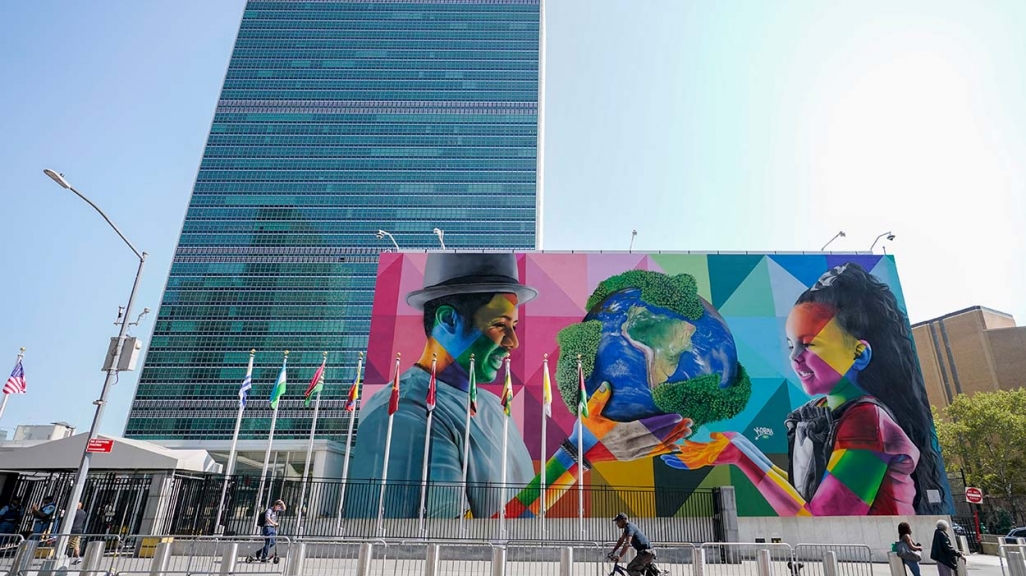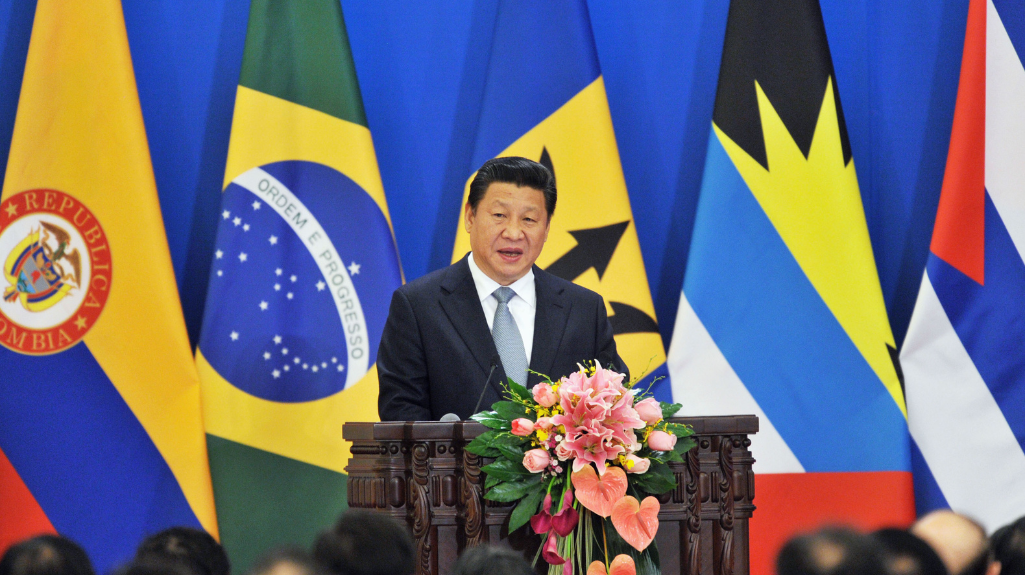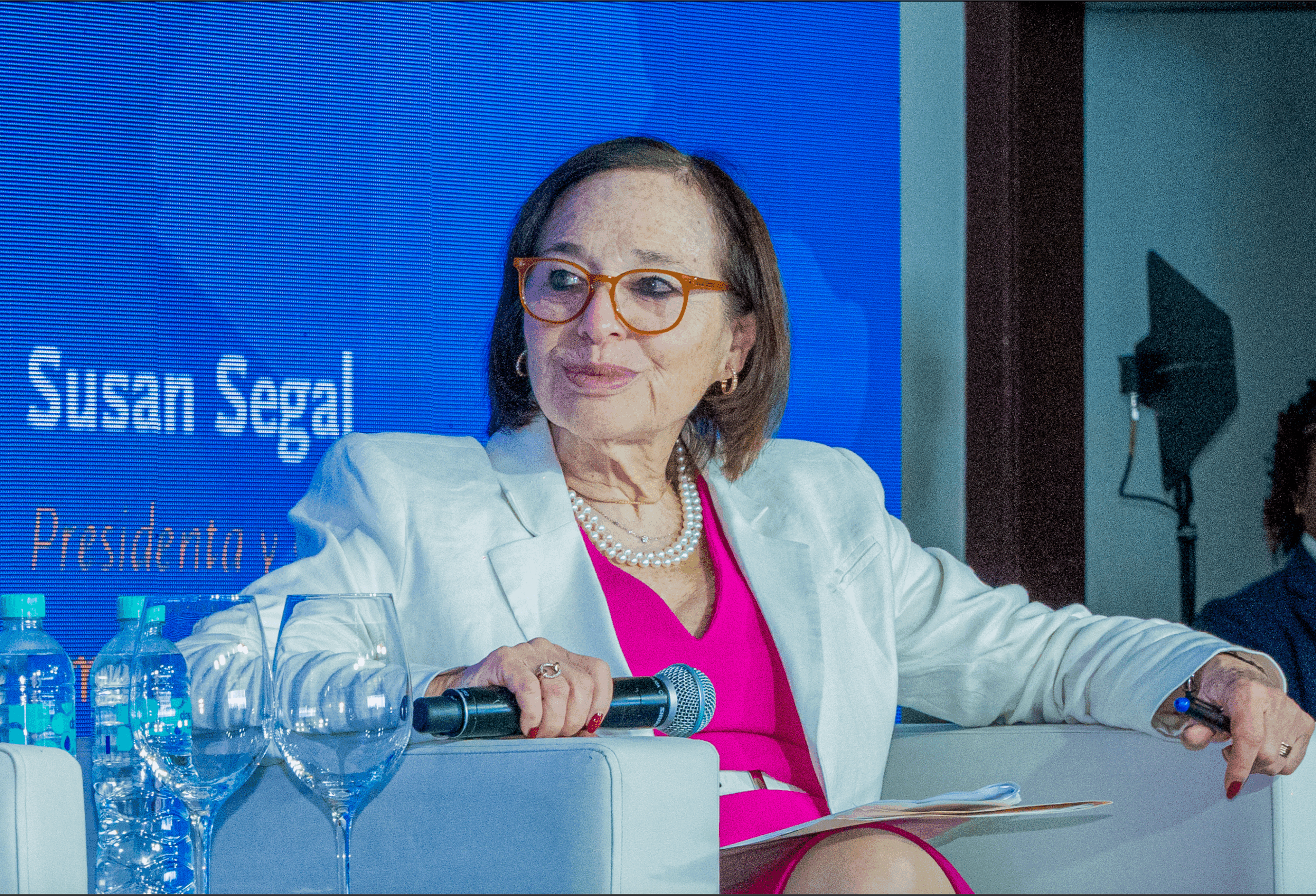Tracking Latin America at the 77th UN General Assembly
Tracking Latin America at the 77th UN General Assembly
The presidents of Chile, Colombia, and Honduras addressed the gathering of world leaders for the first time. We cover developments at the 2022 session.
This coverage was originally published on September 19, 2022, and has since been updated.
The world is facing a moment of transition. After two and a half years of a global health crisis, “the pandemic is over” declared U.S. President Joe Biden on September 18. This, along with the death of long-reigning Queen Elizabeth II, has created the sense that the world is turning a historic page, setting the tone as hundreds of world leaders gather in Manhattan for the opening debate of the 77th United Nations General Assembly, running September 20–26.
Many world leaders arrived in Manhattan after having paid their respects at the Queen’s funeral in London on September 19. Among them was Brazilian President Jair Bolsonaro, who opened this year’s session of the UNGA, as Brazil traditionally does every year. While vaccines—including Bolsonaro’s own hesitancy—were top news at last year’s sessions, this year focused on Russia’s war in Ukraine and its global impact.
Three Latin American leaders addressed the body for the first time: Chile’s Gabriel Boric, Colombia’s Gustavo Petro, and Honduras’ Xiomara Castro. Petro’s speech in particular drew attention for its strong condemnation of the drug war.
Elsewhere in the UN, Latin America is represented by Brazil and Mexico on the powerful UN Security Council and eight Latin American countries on the UN Human Rights Council. The highest-ranking Latin American within the UN system was former Chilean President Michelle Bachelet, who served as the UN High Commissioner for Human Rights until her term expired on August 31, 2022.
As the UNGA unfurls, AS/COA Online tracks major speeches and developments related to the region.
The actions of two authoritarian regimes—Nicaragua and Venezuela—have sparked a political refugee crisis in Latin America. Leaders, like Ecuador’s Guillermo Lasso and Chile’s Boric spoke about their countries’ efforts to relocate Venezuelan migrants and asked for more international support. As Lasso said, "Ecuador is there for the world and I know that the world will also support us with this regularization plan for Venezuelan brothers who have had to leave their country.”
The same week of UNGA, a UN fact-finding mission in Venezuela released a report detailing crimes against humanity perpetuated by the state intelligence agencies, as directed “at the highest levels of the government.” At an event on the sidelines of UNGA, Boric said, “It makes me angry that the left condemns the violation of human rights in Yemen or El Salvador, but not Venezuela or Nicaragua.” In the case of Nicaragua, the number of migrants escaping the country is heavily impacting several countries in Central America, such as Costa Rica. Its speaker at the UN was clear: “Costa Rica has never closed its door to migrants who see in our country a transit route or final destination,” said Foreign Minister Arnoldo André Tinoco.
Just before the UNGA began, extreme weather events, including Hurricane Fiona, brought destructive weather to Central America and the Caribbean. For this reason, several Latin American leaders, including new Costa Rican President Rodrigo Chaves and Dominican President Luis Abinader sent top ministers in their stead to address the international body in New York.
Those speakers took the opportunity to make pleas for climate justice. We “demand that those countries that contribute most to global warming retain in their agendas a vital mechanism for cooperation with those who most acutely suffer the effects of climate change,” said Roberto Álvarez Gil, the Dominican Republic’s minister for foreign affairs. He echoed the sentiments of several other Latin American leaders, such as Boric and Fernández, that developed countries must do more to combat climate change, which represents an existential threat to smaller, coastal countries. “It is the most vulnerable countries who are stepping up their efforts,” said Tinoco. After highlighting his country’s leadership on natural preservation, he called upon leaders to commit to climate financing, mitigation programs, and protecting biodiverse areas.
On September 1, a failed assassination attempt on Vice President Cristina Fernández de Kirchner rattled Argentina and reminded the world of the specter of political violence. Referencing Argentina’s transition from military dictatorship to a pluralistic democracy, President Alberto Fernández condemned the attempted attack and called out extremist discourses and polarization. “Fascist violence that wears the guise of republicanism will not succeed in altering this broad consensus, which the vast majority of Argentina society has rallied behind,” Fernández said.
Argentina has arguably more power in international fora than most Latin American countries—it holds both the presidency of the Community of Latin American and Caribbean States (CELAC) and of the UN Human Rights Council. Fernández used his platform to address a breadth of topics, from climate change to his country's debt agreement with the IMF. He, like several leaders before him including Bolsonaro and Boric, spoke of the role his country, as an agriculture powerhouse, can play in combating global hunger. “We must guarantee a fairer international trade system for agricultural produce,” he said. “This system must be more transparent, more equitable, and more predictable.”
More than one leader questioned the global economic order during Tuesday’s opening session. Honduran President Xiomara Castro, the country’s first woman president, assailed the 2009 coup that ousted her husband Mel Zelaya from the presidency and described it as being “overseen by the international community.” She called the period from that point until she won the presidency in November 2021 a dictatorship and went on to say: “It is impossible to understand the Honduran people and the huge caravans of migrants without recognizing this context of cruel suffering which we have been forced to endure.”
At the #UNGA today, Honduran President Xiomara Castro denounced what she called attacks on Honduras' sovereignty; underscored local plans to de-privatize healthcare, drinking water, electrical energy, and internet; and called for an end to embargoes on Cuba and Venezuela. pic.twitter.com/wVPlG0m8Zf
— El Faro English (@elfaroenglish) September 20, 2022
Castro, who said poverty rates in her country had reached 74 percent during that period, decried what she called the draconian economic austerity measures required of her country and blamed “those who believe themselves to be civilized” of fomenting war, invasion, and financial speculation. She outlined an economic policy that would seek the renegotiation of free-trade pacts and said that Honduras would take the sovereign decision to develop the country through import substitution, adding that migrant exodus witnessed is being caused by unjust neoliberal policies. She also warned the international community against dictating with whom Honduras should have relations, alluding to her government’s ties with Cuba, Nicaragua, and Venezuela.
Meanwhile, Bolivian President Luis Arce, now in his second year in office, said that many human conflicts are promoted by corporations to force a system of capitalism that destroys cultural and environmental heritage. He harangued NATO’s expansionism, Israel’s occupation of the Palestinian territories, and the “countries of capitalism” that spent more money on the war in Ukraine than on the climate crisis. He also made a call to rebalance trade relations. “They continue to benefit only northern countries,” he said.
Salvadoran President Nayib Bukele, who recently announced he plans to seek reelection despite a constitutional prohibition, gave a speech focused on his conception of freedom and sovereignty. Using an extended metaphor, he chastised the developed world for interfering in his country’s affairs. “What they can’t do is come to our house to give orders,” Bukele said. The leader has been criticized for the use of a rights-suspending state of exception. Bukele ended his speech by calling the United Nations system “obsolete.”
Peruvian President Pedro Castillo’s UNGA attendance was in question just five days before he was meant to speak. The subject of various investigations, Castillo was finally given approval to travel to New York on September 15 following a vote by legislators.
At UNGA, he gave a broad-ranging speech that revolved around national sovereignty, self-determination, and anti-interventionism. He said Russia’s invasion of Ukraine was “illegitimate” but lashed out against the economic fallout, which has hurt food security and put his job at risk following large protests in April. He called for all economic sanctions, including on Moscow, to be dropped. He affirmed sovereignty over national resources in Peru’s Amazon and said the region must work together, saying: “Latin America must increase its commitment to conflict resolution and peace.”
Speaking for the first time at UNGA, Colombian President Gustavo Petro lambasted the war on drugs, marking a notable shift away from his country’s long-held policy of shared responsibility in the fight against narcotics. In a speech in which he criticized the “north,” Petro said that the war on drugs has killed many in Colombia, the world’s top cocaine producer, and made African-Americans pawns of the U.S. justice system.
“From my wounded Latin America, I demand you end the irrational war on drugs,” said Petro to world leaders, calling on the Latin American region to unite in shifting away from the conflict. “Hypocrites poison plants to hide disasters in their own countries,” he said, referencing the eradication of coca plants in the Colombian countryside. Last month, Colombian authorities suspended aerial fumigation of coca crops in August, though forcible coca eradication continues.
“Les propongo como Presidente de uno de los paises más hermosos de la tierra y de los más ensangrentados y violentados, acabar la guerra contra las drogas, y así, permitir que nuestro pueblo pueda vivir en paz”: Presidente @petrogustavo en la @UN. #ColombiaEnLaONU 🇺🇳🇨🇴#UNGA pic.twitter.com/U6D1iraodU
— Presidencia Colombia 🇨🇴 (@infopresidencia) September 20, 2022
Petro said that, rather than focusing on the drug war, world powers should pay attention to the climate crisis. The new president, who has promised to wean the country off coal and halt new oil exploration, said their continued use could lead to humanity’s extinction.
This will be lost amid the other coverage, but Petro's speech against the war on drugs was arguably the single most important #UNGA address delivered today https://t.co/PziTZlpJbF
— Ishaan Tharoor (@ishaantharoor) September 20, 2022
The new president lashed out at warmongering, framing it as a distraction from solving environmental challenges and “a trap that draws us closer to the end of time.” On the issue of Russia’s invasion of Ukraine, he alluded to other invasions carried out by Washington, saying, “ Ukraine was invaded, but also Iraq and Libya and Syria were also invaded. They were invaded in the name of oil and gas.” They called on “the Slavic people to talk to each other,” arguing for them to “make peace.”
As La Silla Vacía noted in its analysis of the speech, Petro did not discuss Venezuela in his remarks. Colombia is due to reopen its border with Venezuela this month.
President of Chile Gabriel Boric recently gained international exposure as a TIME Magazine cover star but is also seeking to make up political ground after voters rejected a draft constitution. Boric gave his maiden speech to the UN on September 20, delivering a clarion call for respecting democracy to say: “Chile needs the world. The world needs Chile too.”
Boric, who first gained prominence as a student leader, outlined the contours of the 2019 social explosion, or estallido social, protests, when Chileans took to the street to express their dissatisfaction with the high price of consumer goods, the lack of social mobility, and the attitudes of the political elite. The country’s inequality despite its strong economic growth is, according to Boric, “an inherent threat to democracy.”
The 2019 protests eventually led Chile to the process of trying to rewrite its Constitution. After electing a Constitutional Convention in 2020, Chileans voted on September 4 to reject the draft that body produced by a 24 percent margin. Many saw that vote as a defeat for Boric, whose coalition supported the document.
Boric disagreed. “A government can never feel defeated when the people speak,” he said to the UNGA. With the compulsory vote for the referendum’s leading to turnout of 86 percent, Boric noted that the “Chilean people have given us a lesson in democracy” and noted that the takeaway is that there are still “calls for change without putting [Chile’s] current achievements at risk.” Boric, along with most of Chile’s political leaders, maintains that the process of writing a new Constitution must continue, though details—like who the framers will be, in what format will they be chosen, and the process by which they will draft a document—are still undetermined. Despite the uncertainties, Boric told the UN: “Very soon, Chile will have a Constitution that will satisfy us and make us proud.”
As is tradition, Brazil’s right-wing President Jair Bolsonaro opened up the UNGA General Debate on September 20. But given that polarized presidential elections are coming up on October 2, the speech also served to give Bolsonaro, who trails leftist former President Luiz Inácio Lula da Silva in polls, a platform to reach voters in a way similar to a campaign rally. The president attacked the “systemic corruption” of Lula and his successor Dilma Rousseff early in his opening remarks without explicitly saying their names.
Bolsonaro’s speech focused on making claims of successes of his government. For example, Bolsonaro trumpeted his management of the Covid pandemic, saying his administration “spared no efforts to save lives and preserve jobs.” He also spotlighted Brazil’s “broad-ranging vaccination program including domestic production of vaccines.” While it is true that Brazil’s vaccine rate stands at an 80 percent as of September 18, Bolsonaro has been heavily criticized for his dismissive attitude toward the pandemic and for his vaccine skepticism. Tragically, the country’s Covid death toll is the fourth highest in the world.
Bolsonaro also highlighted Brazil’s macroeconomic situation. The economy ranks as voters’ top issue of concern by a double-digit margin. “The economy is back on the path of growth,” he remarked, noting that Brazil’s inflation rate is lower than it was at the start of the year, though it was still 8.7 percent in August. Economic growth in the second quarter was 1.2 percent, exceeding the projected 0.9 percent. Bolsonaro also highlighted a gasoline tax cut he encouraged Congress to pass; the price of gasoline—a critical metric for many Brazilian industries—has dropped 30 percent from a high in June 2022.
Bolsonaro concluded his remarks by speaking on Russia's invasion of Ukraine. The president has maintained neutrality in the conflict, even when it contradicted the view of his foreign ministry. In his speech, Bolsonaro maintained that both sides are at fault and that, “one-sided or unilateral and selective sanctions” should be avoided.
Mexico’s President Andrés Manuel López Obrador, or AMLO, took the opportunity at the military march on September 16 independence day events to announce that his country would present a proposal at UNGA to suspend the conflict in Ukraine, achieve a five-year global truce, and rein in economic problems such as inflation. AMLO said the proposal would include the creation of a committee to promote dialogue between Russia’s Vladimir Putin and Ukraine’s Volodymyr Zelenskyy that could be moderated by Pope Francis, India’s Narendra Modi, and UN Secretary General António Guterres.
But Kyiv may already have given the idea the thumbs down. A day after AMLO pitched it, Mykhailo Podolyak, advisor to Zelenskyy, called the proposal a Russian plan and said that it would allow Moscow time to regroup while keeping “millions under occupation.” The Ukrainian Embassy in Mexico reshared Podolyak’s tweet, translating it to Spanish.
"Pacificadores" que usan la guerra para sus propias RP solo sorprenden. @lopezobrador_ ¿su plan es mantener a millones bajo ocupación, aumentar los entierros masivos y darle tiempo a Rusia para renovar las reservas antes de la próxima ofensiva? Entonces su "plan" es un plan 🇷🇺. https://t.co/d0T8TqJUiv
— UKR Embassy in MEX (@UKRinMEX) September 17, 2022
AMLO’s previewing of his worldwide peace plan drew attention, in part because his government has been seen as uncertain in its approach to Putin’s invasion. Mexico abstained from an April vote to suspend Russia from the UN Human Rights Council and did not join other countries in applying sanctions. In March, legislators in AMLO’s coalition created a Mexico-Russia friendship committee, giving the Russian ambassador an official platform.
Another reason AMLO’s plan drew attention is that he has generally avoided wading into global affairs, adhering to what is known as the Estrada Doctrine involving a policy of non-interventionism. Since taking office more than four years ago, he has not yet participated in an international summit outside of Mexico, and famously skipped the June 2022 Summit of the Americas in Los Angeles. Indeed, he does not plan to travel to New York to deliver the peace proposal himself, instead sending Foreign Minister Marcelo Ebrard, who is also attending Queen Elizabeth II’s funeral in his stead.
AMLO is known for asserting that “the best foreign policy is a good domestic policy.” To that end, even if the idea doesn’t take flight abroad, it serves a political purpose at home to remind his national audience of sovereignty concerns. “The Russian invasion of Ukraine is without a doubt reprehensible. I’d like to use it to point out that Mexicans don’t accept any foreign intervention because we have been victims of five of these great calamities,” he said, referring to past incursions by France, Spain, and the United States. “These invasions have cost us blood, martyrdom, and territory.”









